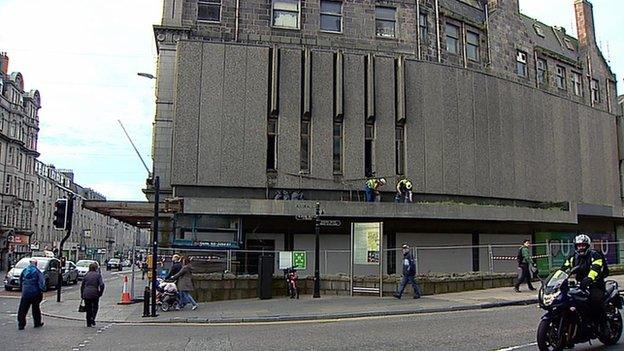Carbuncles no more? Is it time to ditch the dismal town award?
- Published
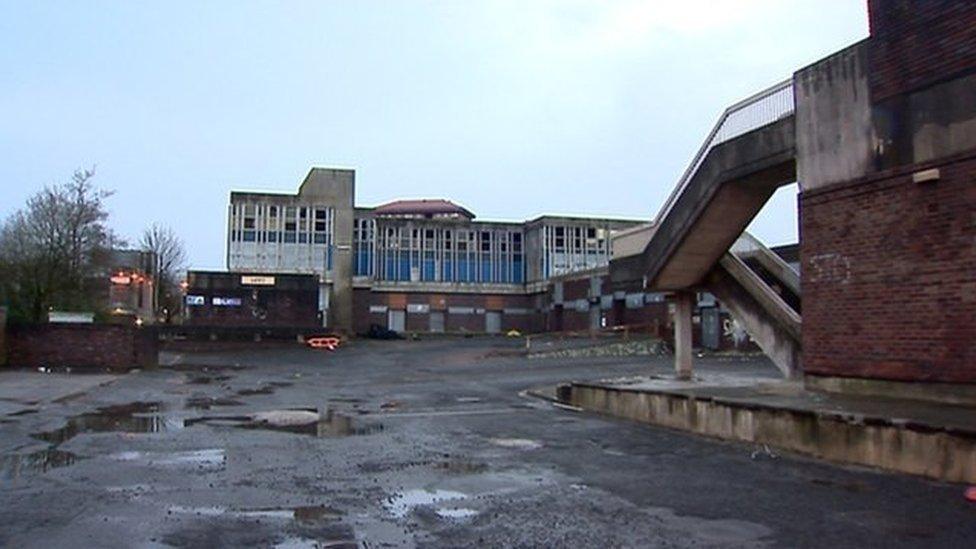
Linwood won the award in 2011
The Carbuncle Awards for the most dismal town in Scotland have been controversial for many years. They are now to be revamped but critics say they should be scrapped completely.
Cumbernauld, Linwood, Coatbridge and Glenrothes are just some of the towns that have been labelled eyesores by the main Carbuncle award - The Plook on the Plinth - over its 17-year history.
Official representatives from these towns rarely acknowledge the awards and few turn up to accept it, meaning it has often been handed to a random resident who has been collared in the street.
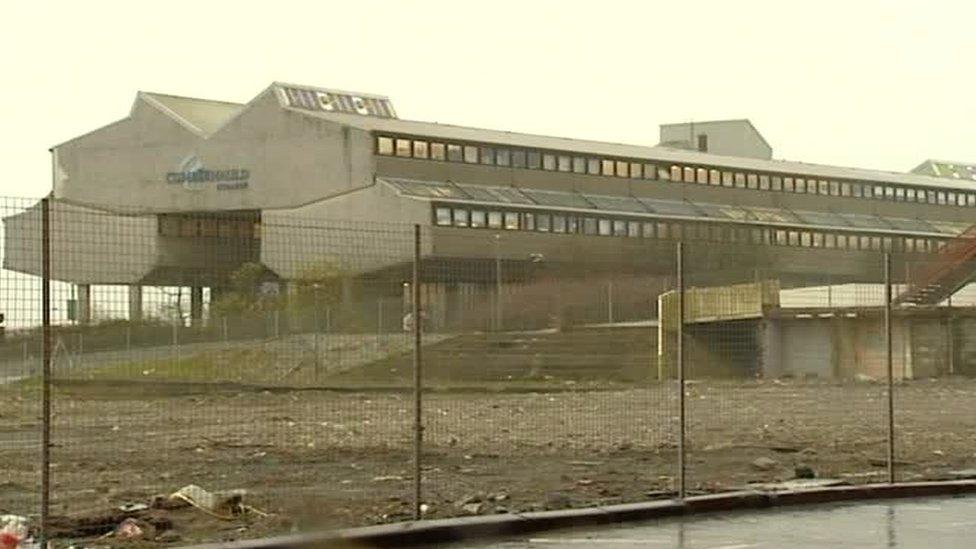
Cumbernauld won the award twice in the early 2000s but has seen improvements since
John Glenday, editor of Urban Realm, the architecture journal that organises the Carbuncles, says the awards have been a "great force for good" but architectural commentator Neil Baxter told BBC Scotland they are "cheap and inappropriate".
Mr Baxter, the secretary of the Royal Incorporation of Architects in Scotland, says "simply demonising a place is an easy one-line gag".
Condemning a town out of hand just because its aesthetic look does not please you does not benefit anyone, he says, and it causes a lot of "collateral damage".
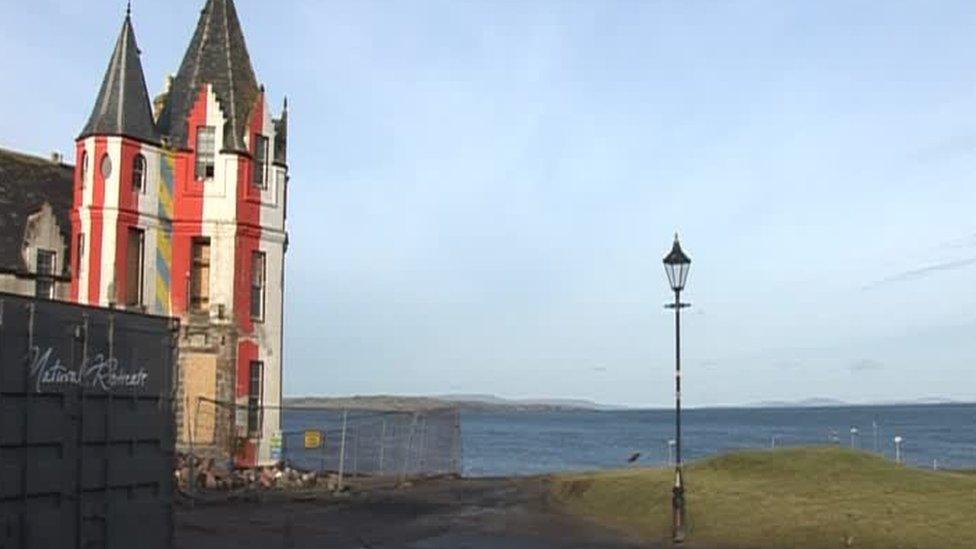
John o'Groats has been transformed since 2010
Mr Baxter says Cumbernauld has the unique distinction of winning the award twice, in 2001 and 2005, but comparing it to Kabul and describing its shopping centre as a rabbit warren on stilts, is to "alienate" the thousands of people who live there.
"There are many people who are passionate about Cumbernauld," he says.
"Many people who live there will extol the community of Cumbernauld, how well it works as a place, how easy it is to get around, how safe it is.
"There are all these layers to places and disparaging something and then walking away is not constructive."

..... and the Carbuncle winners were
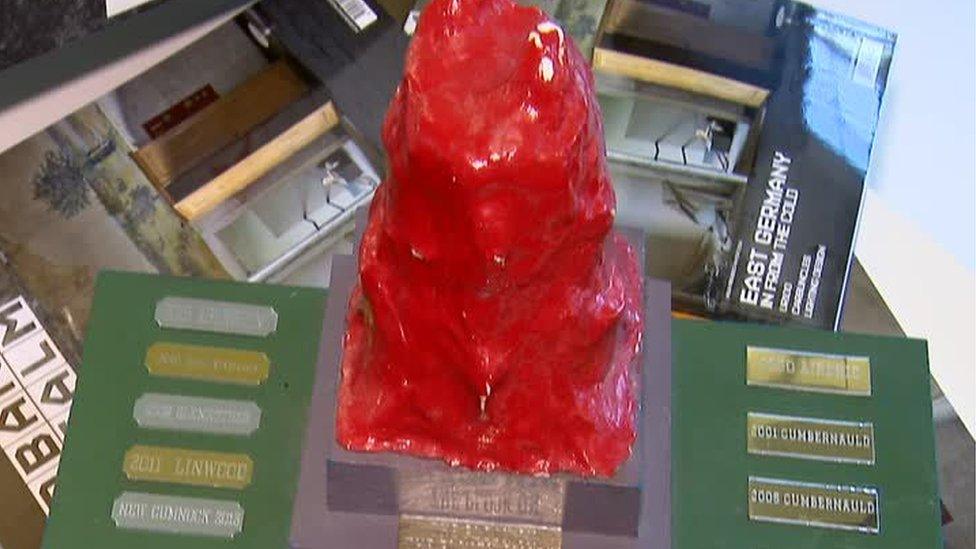
The Plook on a Plinth is awarded to Scotland's most dismal town
Plook on the Plinth Award
2000 - Airdrie (Shortlist included Cumbernauld, Campbeltown, Ardrossan and Balloch)
2001 - Cumbernauld (Shortlist included Gretna, Aviemore, Dumbarton and two areas of Edinburgh)
2005 - Cumbernauld (Shortlist included Cowdenbeath, Dalkeith, Ardrossan, Greenock and Granton in north Edinburgh)
2007 - Coatbridge
2009 - Glenrothes (Shortlist included New Cumnock and Motherwell)
2010 - John o' Groats/Denny (Shortlist included East Kilbride, Inverness and Lochgelly)
2011 - Linwood (Shortlist included Nairn and Fort William)
2013 - New Cumnock (Shortlist included Broxburn, Fort William, Kirkintilloch, Motherwell, Newmilns and Paisley)
2015 - Aberdeen (Shortlist included Cumbernauld, East Kilbride and Leven)

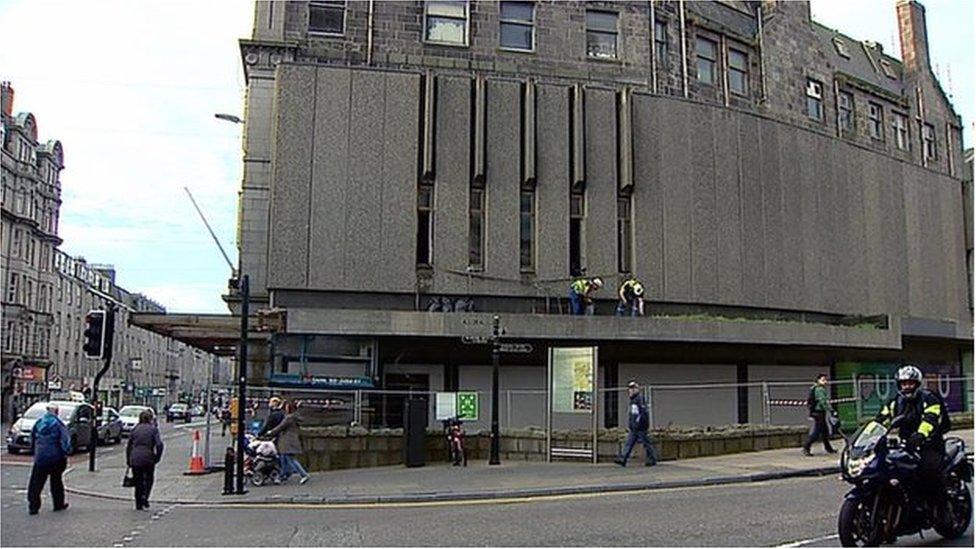
Aberdeen, the most recent winner, was said to have become the poor relation of Scottish cities
The man behind the awards has himself admitted that the format needs to evolve.
Mr Glenday told BBC Scotland: "We are looking to relaunch the format to prevent it becoming too tired or stale, perhaps by bringing in new judges, adjusting our criteria, looking at smaller areas or banning a town from winning twice."
He says he has travelled all over Scotland while judging the awards.
"It's a bit like a road trip from hell sometimes," he says.
"But it is actually quite an eye-opening experience.
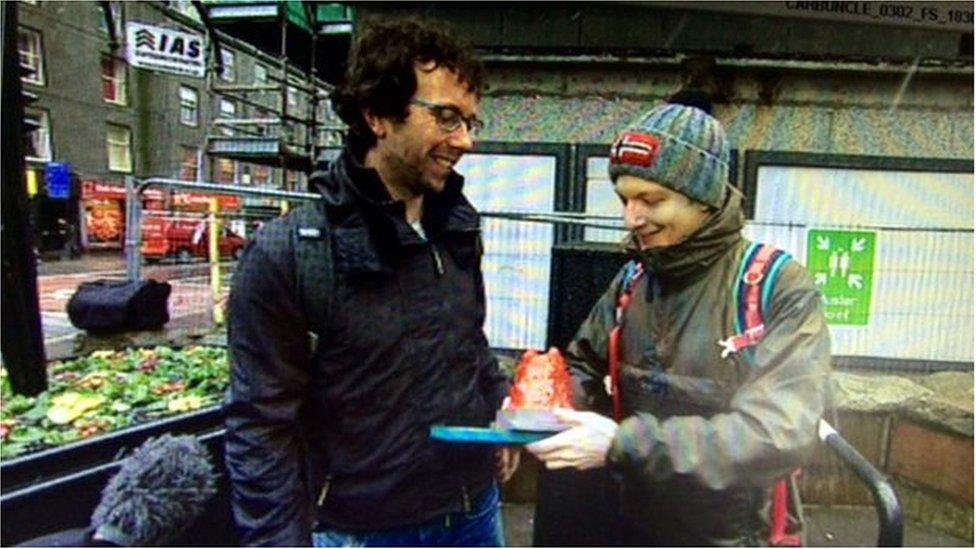
A Marischal Square plan campaigner accepted the award in Aberdeen
"By and large we all go to the same places for breaks or holidays and it is sometimes interesting to go off the beaten track a bit and see parts of the country that are forgotten or have fallen down the back of the couch."
Mr Glenday says he remains an "ardent supporter" of the awards, which has been a catalyst for change in many of the towns it has attacked.
"I look at many of these towns and they have been transformed in the years since we visited," he says.
"We see that in John o' Groats where the waterfront there has been transformed with new holiday lets and the crumbling hotel is now back in business.
"Also in New Cumnock where the town hall has been renovated and the lido has reopened."
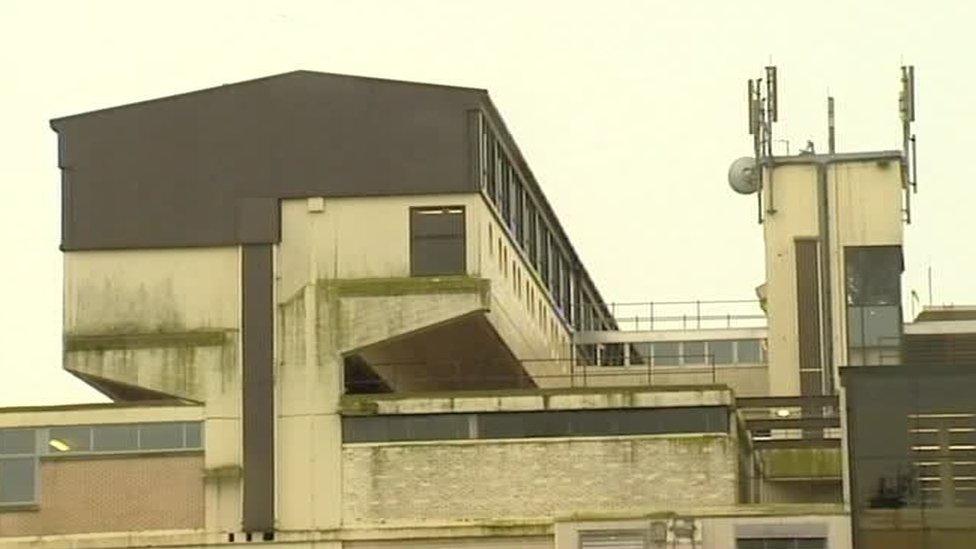
Cumbernauld has attracted a lot of negative publicity from winning the award
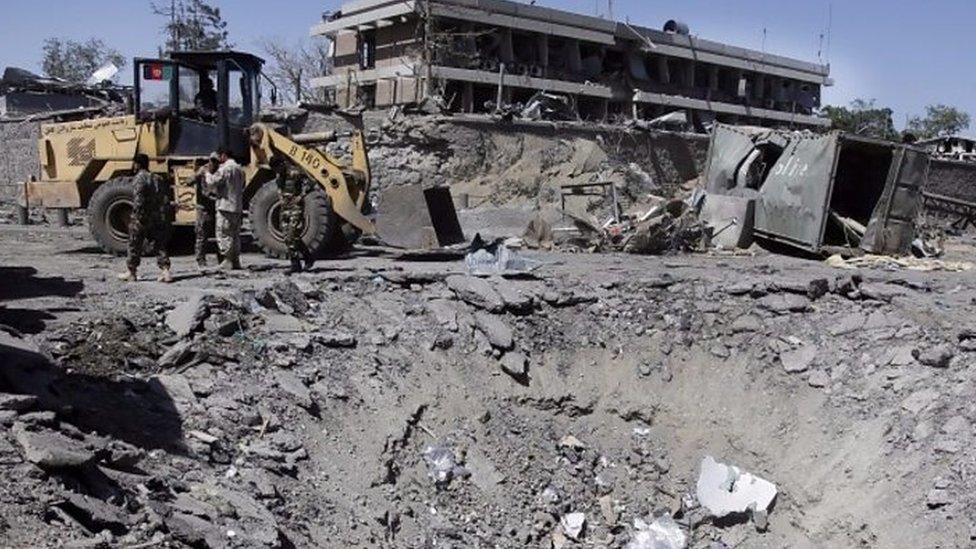
Cumbernauld was compared to the war-ravaged Afghan capital Kabul
"I would not put all of that success to the Carbuncles, some of these changes may have happened anyway, but I think that the Carbuncles can accelerate change and can focus minds to what needs doing."
To back up Mr Glenday's case, the much-maligned Cumbernauld was voted Best Town at the Scottish Design Awards in 2012.
And in 2010 residents in Denny, near Falkirk, asked to be given the award so they could put pressure on local politicians to make changes.
Mr Baxter admits some towns might have improved because politicians respond to the negative publicity.
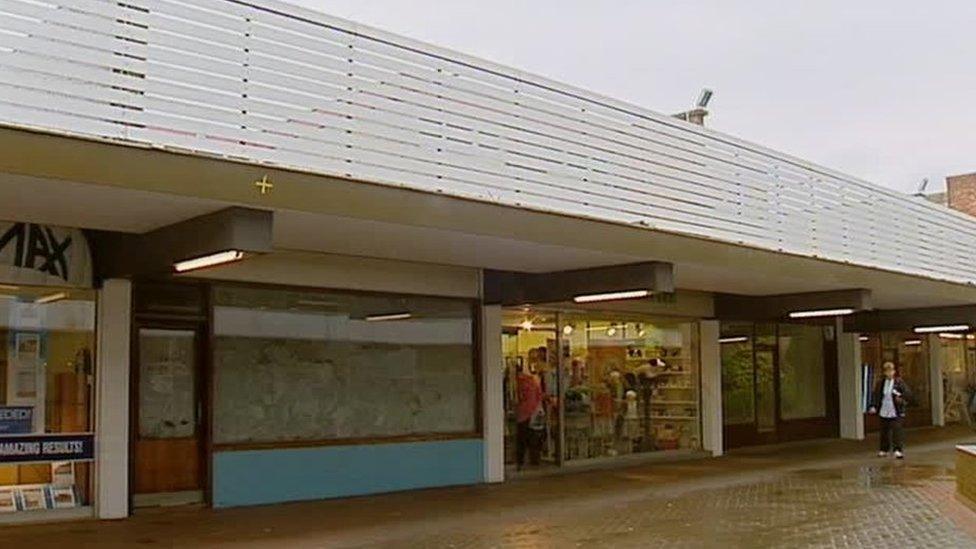
Glenrothes is another town to have been given the award
He says: "If the idea is that you disparage somewhere and that gives the local politicians a kick up the backside, arguably those politicians might not have been doing as good a job as they should have.
"It strikes me that politicians ought to be engaged with their communities and endeavouring to make these improvements and should be able to see with their own eyes if something is as at fault. The politicians who do that tend to be the ones that get re-elected."
Mr Baxter cites the example of Alness, in Ross-shire, and Easterhouse, on the outskirts of Glasgow, as places that used a positive local campaign to bring major changes to their areas.
He says: "I'm sitting in leafy Georgian Edinburgh and there is a lot of litter on the street. So I might disparage the place because of all the litter or I might get up and go out with a sweeping brush, as I have done in the past."
Mr Glenday says he is happy to work with critics to "rejig the format and make it a more productive campaign".
He says: "We can perhaps have a greater effect if we concentrate our efforts on a single building or cluster of buildings which we can train our own expertise and fire power on, something which is a more production avenue."
- Published20 September 2010
- Published25 May 2012
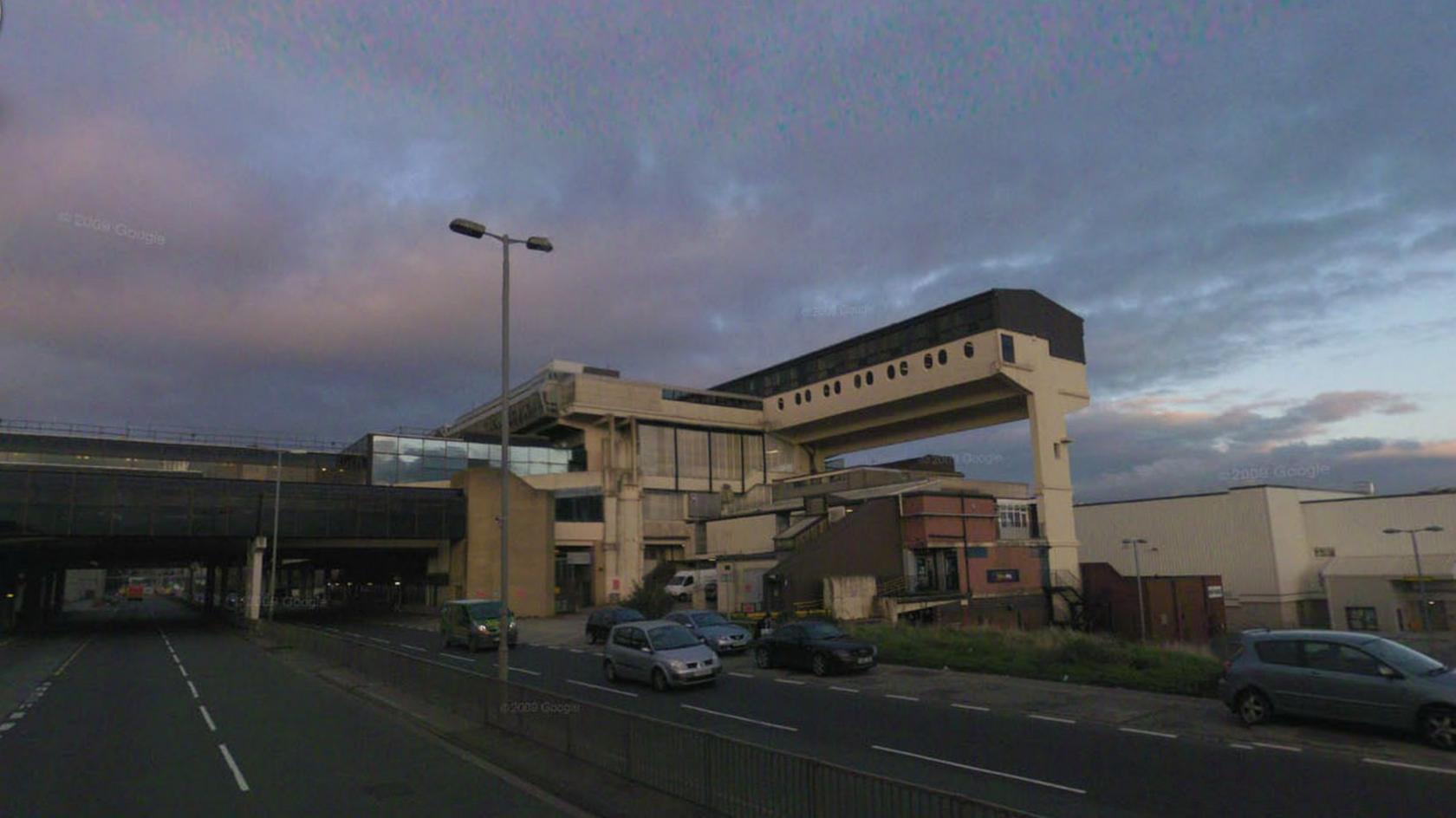
- Published28 March 2013
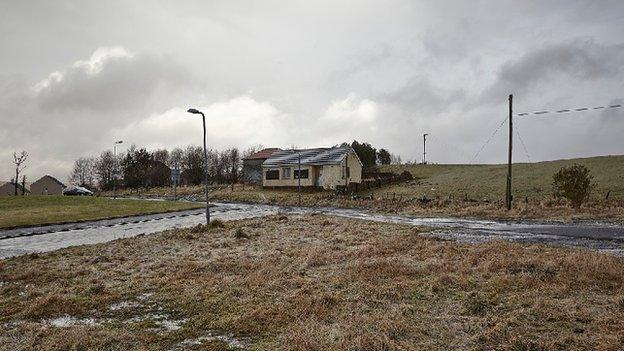
- Published3 February 2015
